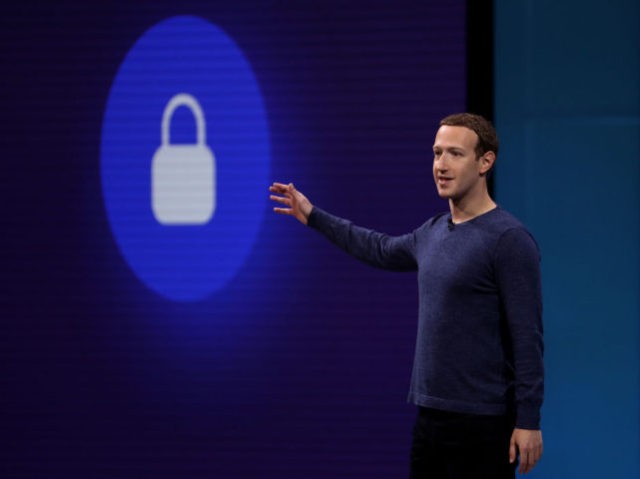The Public Interest Legal Foundation (PILF) released a report Tuesday documenting the $36 million spent in 14 urban counties of Texas in the 2020 election by the Mark Zuckerberg-funded Center for Technology and Civic Life (CTCL).
According to the report:
Grant award letters reviewed by the Foundation showed Texas counties were given money to help shift voting to the mail and away from traditional procedures in Texas law. The large blue leaning counties received huge sums to transform their elections. Smaller red counties did not receive anything close. Mandated changes included were:
- Drive-thru voting
- Mail voting sorting assets
- Polling place rental expenses
- Temp labor expenses, hazard pay
- Personal protective equipment (PPE)
- Voter education/outreach/radio costs
Dallas County was the biggest recipient of CTCL funding among the 14 urban counties in the state, receiving more than $15 million. Thirteen other counties received the remaining $21 million of CTCL funding, including Harris County (Houston), which received more than $9 million:
CTCL Funding of 14 Urban Counties in Texas in 2020 Election
County Amount
Dallas $15,130,433
Harris $9,600,000
Webb $2,820,960
Bexar $1,900,000
Cameron $1,853,729
Tarrant $1,678,522
Travis $1,144,709
El Paso $846,133
Fort Bend $506,500
Hays $289,075
Williamson $263,644
Hidalgo $196,500
Brooks $92,225
Maverick $47,075
TOTAL $36,369,506
CTCL provided funding to an additional 101 counties in Texas for the administration of the 2020 election, bringing the total number of Texas counties that received funding from the Zuckerberg-funded non-profit to 115. The state has a total of 254 counties.
The PILF Report did not indicate how much CTCL funded these 101 additional counties outside of the 14 urban counties, but indicated the bulk of CTCL funding in Texas went to the 14 urban counties.
“The large blue leaning counties received huge sums to transform their elections. Smaller red counties did not
receive anything close,” the report found.
The report also noted “The CTCL and various Texas counties were not always transparent on how the money was spent at the time—or even that they received funds. Some were more open than others.”
This conclusion mirrored the conduct of CTCL in Georgia, where the Fulton County Commission approved the receipt of a $6 million grant without ever knowing the name of the funding source — the Zuckerberg-funded CTCL, as Breitbart News reported in December.
“Private parties cannot be allowed to pay for preferred modes of elections in Texas or anywhere else,” J. Christian Adams, president of PILF, said in a statement accompanying the report.
“Election administration is the most fundamental function of local and state government and must be funded accordingly, full stop,” Adams added.
The PILF report provided details of CTCL’s conduct in Texas, which re-enforced arguments made by another election integrity group in December, as Breitbart News reported:
A report released by the Amistad Project of the Thomas More Society at a press conference on Wednesday alleged Facebook founder Mark Zuckerberg and his wife made $419.5 million in contributions to non-profit organizations during the 2020 election cycle–$350 million to the “Safe Elections” Project of the Center for Technology and Civic Life (CTCL) and another $69.5 million to the Center for Election Innovation and Research–that, “improperly influence[d] the 2020 presidential election on behalf of one particular candidate and party.”
“The 2020 presidential election witnessed an unprecedented and coordinated public-private partnership to improperly influence the 2020 presidential election on behalf of one particular candidate and party. Funded by hundreds of millions of dollars from Facebook founder Mark Zuckerberg and other high-tech interests, activist organizations created a two-tiered election system that treated voters differently depending on whether they lived in Democrat or Republican strongholds,” Amistad Project Director Phill Kline wrote in the report’s executive summary.
The PILF report released Tuesday argued this $36 million in CTCL funding influenced the outcome of the election in Texas, where Trump won a much narrower victory in 2020 over Biden than he did in 2016 over Hillary Clinton:
When you build expansive efficiencies in some counties, you increase the capacity in those counties. Raw voter turnout helps to see differences between 2020 and 2016. Keeping in mind that turnout was up nationally and Texas grew in population since 2016, there are notable trends. Urban and nearby suburban counties within the 14 studied roughly presented a 30 percent increase in turnout for Trump and 40 percent for Biden, compared to 2016 totals. One of the most insidious effects these grants can have is injecting structural bias into the local election administration process. This grossly distorts what used to be straightforward election administration statistics studied in the aftermath.
One county, Tarrant County, flipped from red to blue because of the CTCL expenditures of over $1 million there, the report argued:
Tarrant County, the last urban red county in Texas, flipped in 2020 with Biden improving by 43% in raw votes over 2016 to Trump’s 18%. Tarrant received $1.6 million dollars. The Tarrant County Election Administrator’s budget for the 2020 Election was originally $8,089,517. CTCL juiced that budget by almost 21 percent. Biden also flipped Austin metro area Hays and Williamson Counties with raw vote improvements between 70 and 80 percent.
The reported noted “county election administrators explained they were invited to apply for grants — particularly if they were smaller in terms of population. The optics were better in making the operation look fairer and in the public interest by padding the grantees with small counties whose political loyalties were never in doubt.”
The report pointed to a legislative solution that appears to have stalled in the Texas House of Representatives.
“Rep. Phil King of Weatherford (Parker County took $54,072 from CTCL) filed HB 2283 to prohibit these kinds of practices going forward. The bill has sat in the House Elections Committee since March 15,” the report noted.

COMMENTS
Please let us know if you're having issues with commenting.